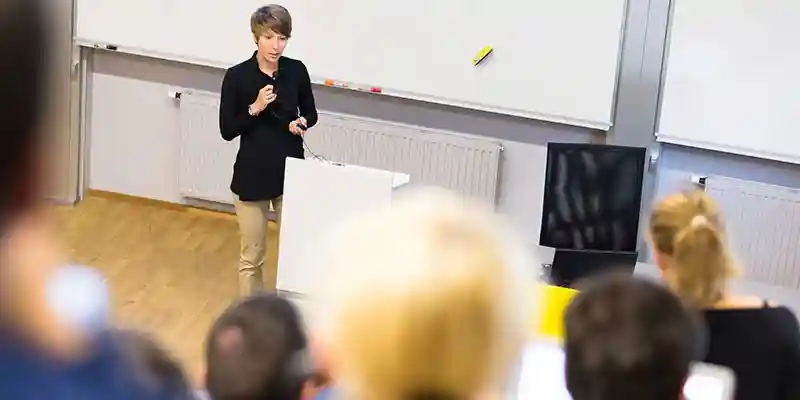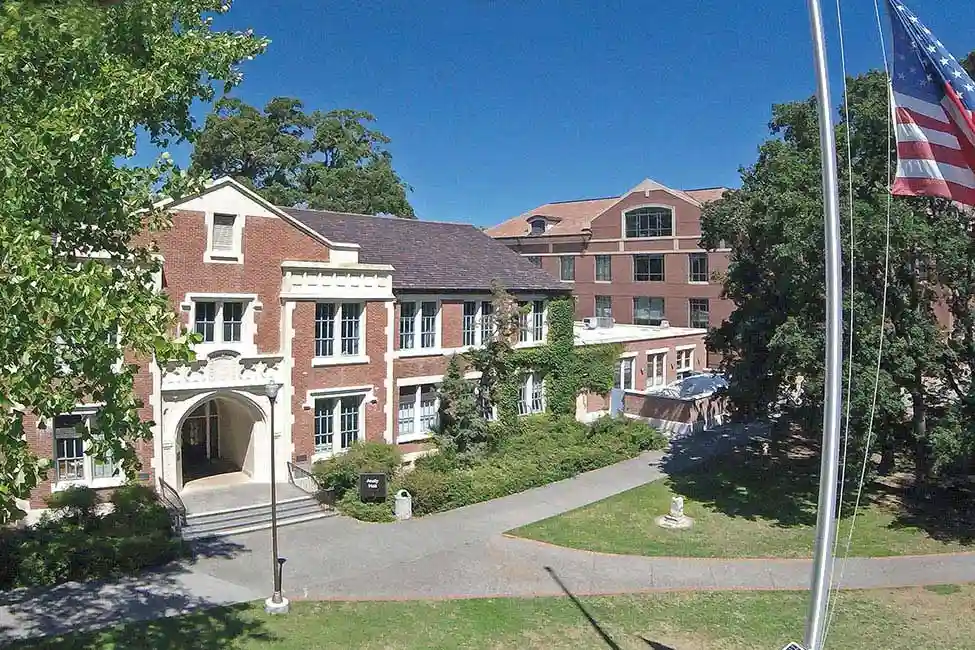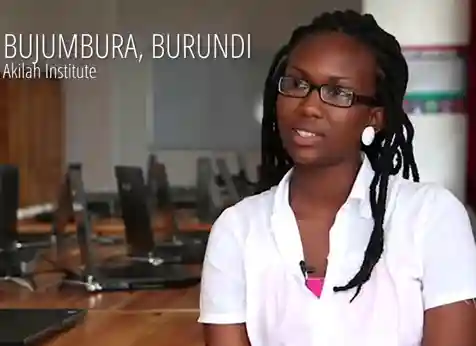What to Expect in an American Classroom

By Antonio Causarano and Pei-ni Lin Causarano
The usual way of teaching and learning in many countries is lecture. Students listen to the professor, take notes, and prepare for a test later in the semester or at the end of the year. There is usually no interaction with the professor or any group work. What is the usual teaching and learning style in your country? Here is a typical classroom scenario found in many countries:
Scenario 1: Introduction to Literature
Professor: Good Morning. How are you doing today?
Students: (students all stand and say) “Very well. Thank you.”
Professor: I will talk about the importance of literature in our modern times.
Students: (Listening, usually in a large class of 100 or more students or auditorium, and begin taking notes.)
Professor: (Begins lecturing): Today I’m going to talk about Chinua Achebe, who wrote Things Fall Apart, the famous and highly influential book about Nigeria. In Achebe’s book, he tells the story of Okonkwo, a man from an Ibo village. He juxtaposes Okonkwo’s fall from one of respect and community influence to disgrace with the arrival of European colonists and the ultimate destruction of the Ibo culture by European missionaries.
The expectations in these educational systems is not to question or criticize but to memorize the facts and concepts the professor lectures about. This kind of classroom is often called teacher-centered and is what is known as top-down because the teacher tells students what they need to know that the teacher believes is important. Students do not question, critique, or discover on their own or in a small group.
The following is an example of how some professors in the U.S. might approach the same literature class:
Scenario 2: U.S. Course Introduction to English Literature
Professor: Good Morning. How is everyone?
Students: (sitting) Fine. Thanks.
Professor: Okay, today we’re gonna get into groups of 4 or 5. In your groups, you need to discuss the questions prepared for Chinhua Achebe’s Things Fall Apart. One member of your group needs to take notes of your discussion. One member needs to summarize the chapters that were assigned for today. You will have 25 minutes to discuss the questions. Then at the end of the discussion time, each group will present on one question. Decide on who will talk for your group. We will then end with a whole class conversation about Okonkwo and the arrival of the European missionaries. Here are the questions. I’ll come around and listen in while you’re in your groups.
Students: (form groups, while the professor hands out the questions).
Questions
1. Describe how Okonkwo ultimately ended up being disgraced in his Ibo village.
2. What happened and what if anything could Okonkwo have done to prevent his fate?
3. How does Okonkwo’s fate mirror that of the collapse of Nigerian culture when the European missionaries arrive?
4. What promises do the missionaries bring and how do these “promises” conflict with the cultures of Nigeria?
5. Was there anything that Okonkwo and the other villages could have done to prevent the ultimate collapse of village culture in Nigeria?
6. How is Things Fall Apart relevant to our lives today in the twenty-first century?
Professor: (25 minutes later) Okay, Group 1, can you tell the class what you came up with for question one?
Students in Group 1: Well, we think that Okonkwo was a victim of the times. He . . .
Questions to Think About
1. How are the two classes different? How are they the same?
2. Which format (lecture or group work) is most familiar to you? Which one do you think is better? Why?
3. What are the benefits to the lecture format and what are the benefits of the group work format? What are the negative effects about each class format?
Antonio Causarano is currently an Assistant Professor of Education in the Department of Curriculum and Instruction at the University of Mary Washington, Virginia. He holds a Ph.D. in Education and an MA in Special Education from the University of New Mexico. He also holds an MA in TESOL and Bilingual Education from the University of Findlay, Ohio. Antonio has taught as a special education teacher in New Mexico and taught Italian as a second language at the University of New Mexico, USA.
Pei-ni Causarano, a native of Taiwan, with multilingual and multicultural language backgrounds, has been an enthusiastic language educator for more than 15 years, serving as an ESL and foreign instructor and consultant at public schools and college levels in the United States and Taiwan. She received her Ph.D. in Educational Linguistics at the University of New Mexico. She loves to travel, study languages, and teach languages. Her research area includes language acquisition, pedagogy, and psycholinguistics, which are inspired by her teaching experience and interactions with students.
Article originally published in Doing the Transcultural Thing: Explorations in Living in the United States, Edited by Michael Schwartz. Dubuque, Iowa: Kendall Hunt Publishing, 2015.
Read the article Learn the Ropes: U.S. Classroom Culture on StudyUSA.com/Resources.
StudyUSA Blog
Get matched to the best program for you
Let us know what you're looking for so we can find the best school for you.
Useful Articles
Check Out These Schools


Santa Rosa Junior College
$10,000 — $15,000 Year

Elgin Community College
$5,000—$10,000 Year
Start your U.S. adventure with Study in the USA

Learn About U.S. education financing, housing, and more
Resources
Learn about American culture and education direct from our experts at Study in the USA. Read more












